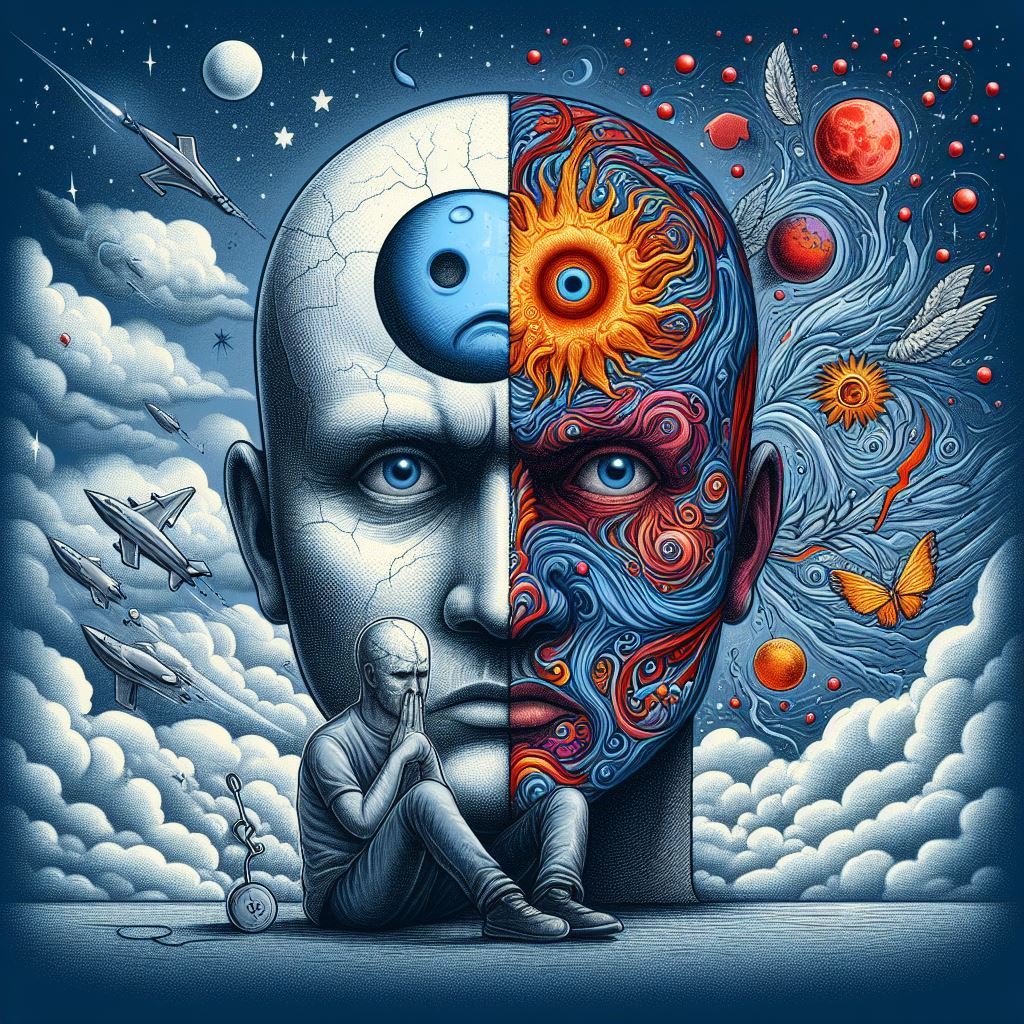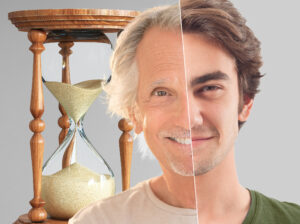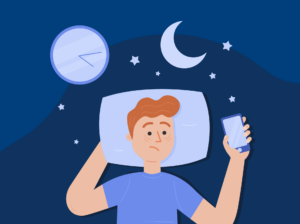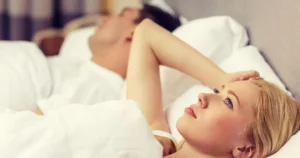What is bipolar hypersexuality and how does it affect sexual behavior in bipolar disorder? Find out in our guide.
Bipolar disorder is a mental illness characterized by two different types of mental states. People with bipolar disorder bounce back and forth between manic episodes and depressive episodes. Depending upon which state a person is in, they could suffer from hypersexuality or hyposexuality, making it difficult to sustain romantic relationships.
Exactly how does bipolar disorder affect sexual health? In this blog post, we’ll dive into that topic and reveal how people with bipolar disorder may be plagued by sexual issues and what you can do about it.
What Is Bipolar Disorder?
Bipolar disorder, formerly known as manic depression, is a mood disorder that causes a person to have mood swings that switch from euphoria to depression. Depending on the person, these mood swings can happen regularly or only occasionally throughout the year. Some people may experience symptoms between their more severe episodes.
In some cases, people with bipolar disorder suffer from hypomania, at which times their manic episodes are less severe.
Symptoms of Bipolar Disorder
Symptoms vary during manic and depressive phases. Manic episodes include at least three of these symptoms:
- Feeling abnormally upbeat, jumpy, or wired
- Excessive energy or feeling agitated
- Euphoria (intense and unnatural excitement, happiness, and self-confidence)
- Not needing as much sleep
- Excessively talkative
- Racing thoughts
- Easily distracted
- Poor decision making skills such as going on spending sprees, making bad investments, and taking sexual risks,
Depressive episodes of bipolar disorder have the following symptoms:
- Feeling sad, empty, hopeless
- Wanting to cry
- Feelings of worthlessness, low self-esteem or guilt
- Loss of pleasure in activities you would normally enjoy.
- Fatigue or low energy levels
- Weight changes, either weight loss without trying, an increase or decrease in appetite, or weight gain
- Brain fog and inability to make decisions
- Irritability
- Insomnia or excessive sleeping
- Restlessness or moving slower than normal
- Reduced sexual desire
- Suicidal thoughts
Bipolar Disorder and Hypersexuality
Hypersexuality is a common symptom of bipolar disorder, and 25% to 80% of people who have manic episodes also experience hypersexuality.1 Although bipolar hypersexuality is common in people with bipolar disorder, not all people with bipolar disorder experience hypersexuality.
This type of hypersexuality occurs during a manic episode in some people with the disorder, who develop an abnormally increased libido that leads to compulsive sexual behavior and frequent sexual thoughts.
Bipolar hypersexuality is characterized as being preoccupied with sexual urges, fantasies, or behaviors that are difficult to control and that interfere with your job, health, or relationships. Bipolar hypersexuality is essentially the same as sexual addiction.
Often, people with bipolar hypersexuality want more and more sexual activity, but have decreased sexual satisfaction even when they engage in the act.
Technically, there’s no official medical definition for bipolar hypersexuality, since it’s not recognized as a medical disorder in and of itself. However, increased sexual energy or sexual indiscretions are included in the diagnostic criteria for bipolar disorder in the International Classifications of Diseases 10 (ICD 10) and Diagnostic and Statistical Manual of Mental Disorders V (DSM-V).2
Manic Episodes and Compulsive Sexual Behavior
During a manic episode, hypersexuality manifests as sexual behavior that’s not typical for you when you aren’t in a manic episode. Hypersexual behavior includes:
- Sex with multiple partners
- Masturbating excessively
- Sexual activity without feeling sexually satisfied
- Risky sexual behavior
- Frequently using pornography
- Visiting sex workers
- Frequent sexual affairs and risking your relationship
- Having unprotected sex
- Frequent one-night stands
- Preoccupation with sex
One study found that compared to men who did not have bipolar disorder or unipolar depression, bipolar patients had more sexual partners in the last year and were more likely to have had unprotected sex without condoms.3 Compared to bipolar women, bipolar males had many more partners and had more sex with strangers.
Risks of Hypersexuality
Hypersexuality can cause sexual urges that are harmful to your health and your sex life. Bipolar hypersexuality can lead to sex with multiple partners, sex with strangers, or having an affair, resulting in an increased risk of sexually transmitted infections.
Preoccupation with sex can lead to sexual distress since you may not be able to stop thinking about sexual gratification at times when you should be concentrating on work or other activities.
Depressive Episodes and Low Sexual Desire
During a depressive episode, people with bipolar disorder often have decreased sex drive and sexual desire and poor sexual function, leading to sexual distress.
Symptoms of hyposexuality during a depressive episode include:
- Low sexual desire
- Feeling less desirable and having low self-confidence
- Unresponsive when looking at sexual content in a book or movie
- Feeling exhausted mentally or physically
- Feelings of sexual worthlessness
- Not paying attention to personal hygiene
- Experiencing sexual dysfunction
These symptoms all affect the sexual experience of men with bipolar depression and can lead to conflict in couple relationships, as well as sexual dysfunction.
Managing Sexual Health in Bipolar Disorder
Treating bipolar disorder can help get rid of bipolar hypersexuality, as well as the problems with sexual function that occur during depressive phases. There are two ways doctors treat bipolar disorder:
Medications
Medications used to treat bipolar disorder include:
- Antipsychotics
- Mood stabilizers
- Antidepressants
These medications can help prevent or reduce bipolar episodes and symptoms like hypersexuality, as well as other symptoms associated with the disease.
Antipsychotics
Antipsychotics are used in bipolar disorder because they can act as sedatives and reduce anxiety and agitation.4 They may also help improve sleep in bipolar patients. Usually, they’re taken with a mood stabilizer drug and can reduce mania symptoms until the effects of mood stabilizing drugs kick in. Some antipsychotic drugs can even stabilize moods on their own and may help treat bipolar depression in addition to mania.4
Mood Stabilizers
These medications including lithium, divalproex, and carbamazepine reduce abnormal activity in the brain.5 They may help prevent or reduce a manic or depressive episode and eliminate mood swings.5
Antidepressants
Antidepressants are sometimes used in bipolar disorder, although with caution since there’s a chance they can cause mania or rapid cycling between mania and depression.6
Professional Therapy for Bipolar Disorder
Therapy is used together with medications to reduce symptoms in bipolar patients. Talk therapy, especially cognitive behavioral therapy, often is successful, especially when used together with medications. Professional therapy can teach you coping strategies for dealing with bipolar episodes and related sexual issues.
If your hypersexual behavior is impacting your relationship, then couples therapy in addition to individual therapy can help resolve issues in your committed relationship and improve your sex life.
Couples therapy can also help your sexual partner understand how your bipolar disorder impacts your relationship.
Frequently Asked Questions About Bipolar Disorder and Sexual Behavior
What does hypersexuality in bipolar disorder feel like?
Bipolar hypersexuality occurs in the manic phase of the disease. During this time you may have sexual impulses and can’t stop thinking about sex. These obsessive sexual thoughts can lead to unhealthy sexual actions such as having multiple sexual partners and unprotected sex. You may never feel sexual satisfaction no matter how much sexual activity you engage in.
When the manic phase is over or when you’re treated for bipolar disorder, you may feel sexual distress and guilt over sexual behaviors that you wouldn’t normally engage in.
How long does bipolar hypersexuality last?
Bipolar disorder is a mood disorder and lifelong condition, so symptoms like hypersexuality may persist over time. Since bipolar hypersexuality occurs in the manic phase of bipolar disorder, it is a symptom that goes away between episodes. Treating bipolar disorder also can cause bipolar hypersexuality to go away.
How do you deal with hypersexuality in bipolar disorder?
The best way to cope with bipolar hypersexuality is to get treated for bipolar disorder. Taking medications like mood stabilizers and antipsychotics can make your bipolar symptoms go away, including sexual issues like impulsive sexual behaviors, increased sexual activity, and abnormal sex drive.
Professional therapy can work together with the medications to resolve symptoms like bipolar hypersexuality.
Do people with bipolar disorder have trouble with relationships?
Bipolar disorder can definitely get in the way of healthy relationships. People with bipolar disorder often engage in sexual behaviors that can make it difficult to maintain a relationship. Bipolar hypersexuality that occurs during a manic episode can lead to having sex with many partners.
Hypersexuality in bipolar disorder also can lead to unhealthy sexual urges, unprotected sex, and compulsive sexual behavior that can result in infidelity to your partner.





